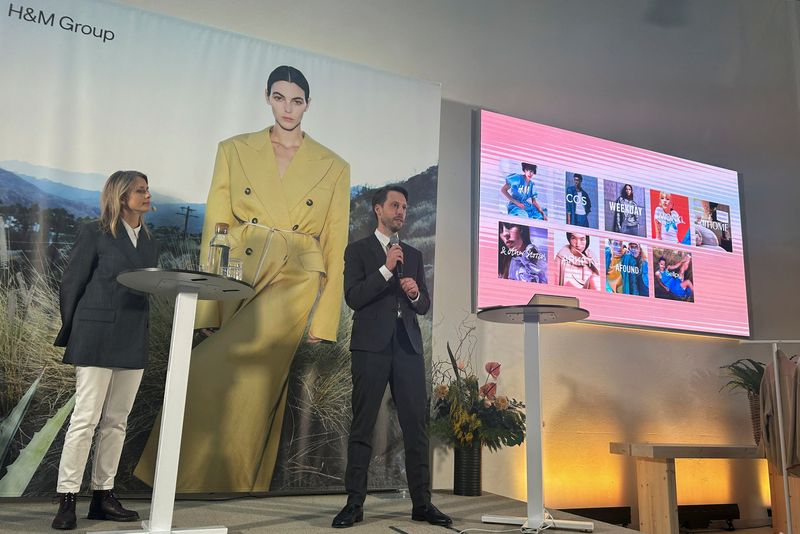LONDON (Reuters) - H&M's new CEO on Wednesday said Red Sea disruptions to shipping are a concern for the fashion retailer, but that higher transport rates are not yet hitting profit.
Shipping firms are avoiding the Suez Canal due to militant attacks and rerouting container ships around the southern tip of Africa, delaying the arrival of clothes and shoes in Europe from factories in Asia.
"Of course, given that we want to be really relevant on time and have the best products at the right time for the customer, we are concerned about the situation," Daniel Ervér told Reuters in an interview after he took the reins at H&M.
He added that increased transport rates are not having a major impact on profitability "at this point", but that the company is reviewing what it needs to transport via air freight, which is more costly.
"We have improved our speed of supply chain, which is a really good thing," said Ervér, "but it makes us a little bit more vulnerable to disruptions."
Bernstein analysts see H&M and Primark among the most impacted apparel retailers given their higher reliance on Asian sourcing and high use of sea freight. Zara owner Inditex (BME:ITX) transports more products by air, and has a higher share of suppliers near Europe.
Outgoing CEO Helena Helmersson, who surprised investors by quitting with immediate effect, said H&M has been developing nearshoring in Europe and in Latin America.
"It's a clear shift, when we look at sourcing, to do more nearshoring," she said in an interview.
The retailer has also been focused on bringing its inventory levels down to limit discounting, and said on Wednesday its stock-in-trade fell to 15.8% of rolling 12-month sales, from 17.1% at the end of the third quarter.

H&M CFO Adam Karlsson told analysts the company's target is for inventory levels at between 12% and 14% of rolling 12-month sales.
The company said a "higher share of nearshoring" and more buying in-season would help it keep improving inventory levels.